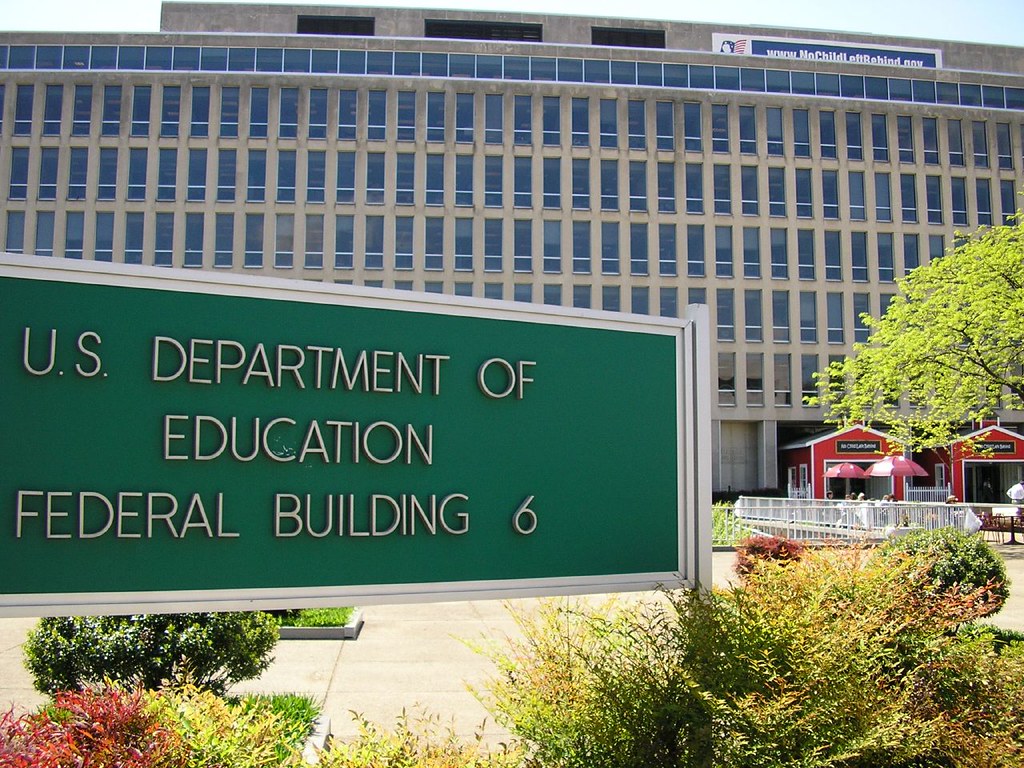
On March 20, President Donald Trump signed an executive order to begin the process of dissolving the U.S. Department of Education (ED) in an effort to return the main functions of the department to the U.S., according to the White House website. While the order is still awaiting approval by Congress, there are possible implications for students in higher education, namely those who rely heavily on financial aid.
According to the executive order released, statistics are showing historically low test scores on the National Assessment of Educational Progress in grade schools, and closing the ED can provide “families the opportunity to escape a system that is failing them,” sending federal funding to the U.S. The executive order explains that the ED currently manages student loans and federal student aid programs, among other functions.
Daniel Reed, Point Loma Nazarene University’s director of financial aid, works in the department that may be directly impacted by this executive order.
“Shutting down the Department of Education would take an Act of Congress,” Reed said in an email interview. “And while we have seen this as a goal of the current administration, we have not yet seen the mandate from Congress.”
Reed said that downsizing the ED might impact its efficiency, but it’s unlikely that students will notice an immediate impact at the university level. However, he said that students applying for financial aid next year or those going into repayment might notice delays.
“We also depend on [ED] for approval to offer financial aid, so delays may further prevent us from providing resources to students as Point Loma develops new programs,” Reed said.
Lindsey Lupo, dean of the School of Humanities, Arts, and Public Engagement, said she worries that the absence of these federal workers could lead to chaotic systems.
“Most immediately, students could start to see some of their interactions with the Department of Education interrupted,” Lupo said in an email interview. “Like hitting snags with their FAFSA submission or having trouble with federal loan distribution.”
She said that higher education institutions like PLNU could be impacted because the ED issues federal aid such as Pell Grants.
“The Department of Education was founded on the principle that education is the great equalizer in American society,” Lupo said. “It’s good for both people and for the economy, and offering need-based grants through a federal department is one way that this principle is brought to fruition.”
Reed said that over half of PLNU’s student population relies on federal student loans. In the 2024-25 academic year, 27% of undergraduate students, including those in accelerated undergraduate programs, used the Pell Grant, according to Reed.
Nathan MacDonald, a fourth-year Christian studies major, said that he first heard about the executive order about a week after it was signed.
“My initial reaction was disappointment,” he said.
Since he already filed his final FAFSA in 2024, he has not experienced any delays in the process. He said that he is concerned about the long term impact that this could have on students nationwide.
“I think it’s just going to put a strain on low income school districts,” MacDonald said.
Reed said that there have been successful transitions in the past, which gives him hope.
“Just a few years ago, private lenders managed student loans, FFELP loans, rather than [ED], direct loans, so there have been successful transitions in the recent past,” Reed said. “As long as funding continues, the governing authority may not matter much to students.”
For now, Reed encourages students to stay on their course of study.
“If and when changes are made, our office will support Point Loma’s students along the way, providing guidance and clarity wherever possible,” he said. “We [the PLNU financial aid office] want our students to succeed and are committed to connecting them with the resources they need.”
